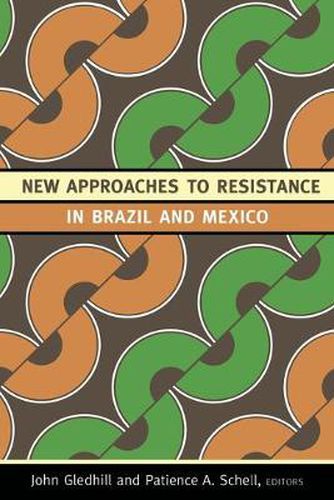Readings Newsletter
Become a Readings Member to make your shopping experience even easier.
Sign in or sign up for free!
You’re not far away from qualifying for FREE standard shipping within Australia
You’ve qualified for FREE standard shipping within Australia
The cart is loading…






Bringing together historically and ethnographically grounded studies of the social and political life of Brazil and Mexico, this collection of essays revitalizes resistance as an area of study. Resistance studies boomed in the 1980s and then was subject to a wave of critique in the 1990s. Covering the colonial period to the present day, the case studies in this collection suggest that, even if much of that critique was justified, resistance remains a useful analytic rubric. The collection has three sections, each of which is preceded by a short introduction. A section focused on religious institutions and movements is bracketed by one featuring historical studies from the sixteenth through the nineteenth centuries and another gathering more contemporary, ethnographically-based studies. Introducing the collection, the anthropologist John Gledhill traces the debates about resistance studies. In the conclusion, Alan Knight provides a historian’s perspective on the broader implications of the contributors’ findings.
Contributors. Helga Baitenmann, Marcus J. M. de Carvalho, Guillermo de la Pena, John Gledhill, Matthew Gutmann, Maria Gabriela Hita, Alan Knight, Ilka Boaventura Leite, Jean Meyer, John Monteiro, Luis Nicolau Pares, Patricia R. Pessar, Patience A. Schell, Robert Slenes, Juan Pedro Viqueira, Margarita Zarate
$9.00 standard shipping within Australia
FREE standard shipping within Australia for orders over $100.00
Express & International shipping calculated at checkout
Bringing together historically and ethnographically grounded studies of the social and political life of Brazil and Mexico, this collection of essays revitalizes resistance as an area of study. Resistance studies boomed in the 1980s and then was subject to a wave of critique in the 1990s. Covering the colonial period to the present day, the case studies in this collection suggest that, even if much of that critique was justified, resistance remains a useful analytic rubric. The collection has three sections, each of which is preceded by a short introduction. A section focused on religious institutions and movements is bracketed by one featuring historical studies from the sixteenth through the nineteenth centuries and another gathering more contemporary, ethnographically-based studies. Introducing the collection, the anthropologist John Gledhill traces the debates about resistance studies. In the conclusion, Alan Knight provides a historian’s perspective on the broader implications of the contributors’ findings.
Contributors. Helga Baitenmann, Marcus J. M. de Carvalho, Guillermo de la Pena, John Gledhill, Matthew Gutmann, Maria Gabriela Hita, Alan Knight, Ilka Boaventura Leite, Jean Meyer, John Monteiro, Luis Nicolau Pares, Patricia R. Pessar, Patience A. Schell, Robert Slenes, Juan Pedro Viqueira, Margarita Zarate